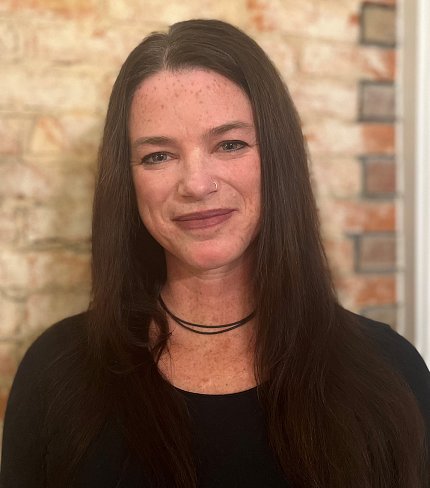Fogarty Makes a Match to Improve SCD Care

Each NIH institute, center and office has specialty expertise. Fogarty International Center’s unique know-how is an ability to foster lasting partnerships inside NIH, within the U.S. government and across the globe as part of its mission to facilitate global health research.
In October, this proficiency was highlighted when Fogarty collaborated with the National Heart, Lung, and Blood Institute (NHLBI) and the U.S. Agency for International Development (USAID) to gather researchers, policymakers, funders and advocates for a webinar to address sickle cell disease (SCD) in Africa.
Execution challenges
Dr. Rachel Sturke understands the challenges of implementing evidence-based health care practices within highly specific contexts. The Fogarty senior scientist has worked on various HIV programs in her career and developed an efficient method for initiating tailored research processes. She introduces researchers and implementers to a country’s Ministry of Health, explained Fogarty’s Deputy Director Dr. Peter Kilmarx.

“The ministry then says, ‘These are our challenges; these are our questions, and here’s what we want to know how to do.’ This makes the researchers happy, because they understand exactly what is needed, plus they know their research results will be put into practice.”
Kilmarx recognized a new practice area requiring Sturke’s methodology at Fogarty’s February 2024 board meeting. There, Dr. Atul Gawande, assistant administrator for global health at USAID, stated that SCD is an agency priority; yet, despite there being known interventions, implementation challenges remain. Kilmarx said, “So we reached out to the NHLBI, which is the lead on SCD research at NIH, and asked if they’d be interested in working with USAID.”
Many Zoom calls followed. Kilmarx, seeking common points of interest, learned that both organizations work on SCD in Nigeria, Ghana, Tanzania and Uganda. The three groups then arranged a webinar focused on these four countries, with added emphasis on addressing barriers and creating context-specific solutions.
More than 170 attendees tuned in to learn about SCD research and implementation efforts in Africa. The webinar generated new momentum. “It sounds like NHLBI and USAID will be collaborating now, so we at Fogarty, once again, worked ourselves out of a job,” said a smiling Kilmarx.
Nigerian Perspective

The October 21 webinar included presentations moderated by Sturke and others, including Dr. Courtney Thornburg, chief medical research officer in NHLBI’s Division of Blood Diseases and Resources (DBDR), and Dr. Makeda Williams, global health program director at NHLBI. Country-level breakout sessions convened attendees to discuss opportunities for networking, resource-sharing and devising strategies to improve SCD care.
SCD, which affects about 8 million people worldwide, is especially prevalent among people of African descent. On the African continent, roughly 515,000 babies are born with this inherited blood disorder each year. Sadly, many do not survive childhood due to inadequate diagnostics and treatments.
“The World Health Organization and the U.S. Centers for Disease Control and Prevention have both identified sickle cell disease as a public health priority,” stated hematologist Dr. Obiageli Nnodu, who delivered remarks and a call-to-action on behalf of Nigeria’s Ministry of Health. A recent Nigerian demographic survey found an average prevalence of 1.45% nationally.
“With a population of more than 230 million individuals, this makes Nigeria the country with the highest prevalence of sickle cell disease globally,” said Nnodu, principal investigator for a Fogarty training program. A Nigerian analysis estimated that 4.2% of in-country under-5 deaths are attributable to the disease.

Photo: Badru Katumba / World Health Organization
To address this, Nigeria’s Ministry of Health has developed a multisectoral plan, explained Nnodu. Strategic priority actions include establishing universal newborn SCD screening; promoting validated, inexpensive point-of-care testing at all levels of health care; improving access to affordable SCD treatments, such as hydroxyurea; expanding and strengthening genetic testing and counseling; establishing an SCD patient registry to enhance surveillance; and promoting and coordinating implementation science activities.
Nnodu said the ministry is eager to work with governments, funders, private sector organizations, academic institutions and others “to bring evidence-based interventions for the prevention and management of sickle cell disease…across the African continent.”
Continental Issues
Dr. Julie Makani, a physician-scientist at Muhimbili University of Health and Allied Sciences, spoke on behalf of SickleInAfrica, an NHLBI-funded initiative that fosters collaboration among African countries.
Phase one of SickleInAfrica (2017-2021) operated in three countries—Ghana, Nigeria, and Tanzania. During the first phase, SCD care guidelines were developed and more than 13,000 patients enrolled in an electronic registry.
“With newborn screening, management of infection and acute management of complications, we are able to reduce mortality by more than 70%,” noted Makani.
Phase two expanded SickleInAfrica participation to Mali, Uganda and Zambia. With help from South Africa’s Data Coordinating Center, patient enrollment in the registry now exceeds 34,000. Phase two focuses on research that can lead to improved health outcomes, increased newborn screening and enhanced treatment delivery.
Strategy & Advocacy

Photo: Evelyn Mwesigwa Harlow
Chief Medical Officer Dr. Pavani Kalluri Ram of the Bureau for Global Health at USAID said the agency is focused on strengthening child health platforms related to SCD and other infections that raise the risk of preventable mortality, such as malnutrition. Additionally, USAID aims to fortify primary health care to ensure the workforce is equipped with clinical skills and needed commodities.
NHLBI’s efforts include a “range of activities that go from basic science to clinical studies aimed at trying to understand better the pathophysiology of SCD,” said DBDR Director Dr. Julie Panepinto. The division also seeks to develop transformative therapies, including cell and gene therapies.
“The sickle cell journey cannot be walked alone,” said Evelyn Mwesigwa Harlow, who recalled her inexperience and lack of information when first told that her own child had SCD.
To help other parents and patients, she founded a support group, Sickle Cell Network Uganda. The organization sponsors Uganda King Oyo’s campaign urging young people to undergo genetic SCD screening before marriage and is working with religious groups to promote awareness and treatment for SCD-affected children. “We want strong messages on billboards, on radios, on television encouraging everyone: ‘Do you know your sickle cell status?’”
Harlow concluded by mentioning a Sickle Cell Network Uganda-sponsored run, which attracted more than 100,000 participants. “We call this the Red Royal Mile, because we made it red for sickle cell awareness. We called upon every person interested in life and human health and we ran for only one cause—sickle cell.”
